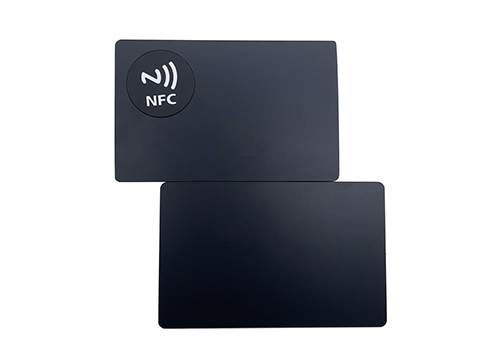Enhanced User Experience
One of the significant advantages of using NFC business cards is that they offer an enhanced user experience, making networking and information sharing much easier and faster.
Table of Contents
Enhanced User Experience
Increased Accessibility
Cost-Effective and Environmentally Friendly
Versatility of NFC
Advancements in NFC Technology
NFC business cards eliminate the need to download a specific app or input contact information manually, making the process even smoother for cardholders. With an NFC-enabled device, the user only needs to come close to the NFC chip on the card, and the information is automatically transmitted between devices in just a few seconds, leaving the cardholder with a digital version of the contact information.
Furthermore, the instant transmission of digital profiles via NFC technology frees up time, reduces the margin of human error, and provides a more automated approach to networking, allowing for immediate follow-up and faster communications.
With the availability of multiple NFC reading devices, including mobile devices, tablets, and laptops, the NFC technology provides universal accessibility to the user and also removes the need to carry paper or magnetic-stripe business cards.
In short, NFC business cards simplify networking and information sharing by providing maximum convenience for both the cardholder and the receiver. The ability to share contacts and other necessary data with a simple tap of a device saves time, eliminates wasted materials, and reduces the chance of missing out on valuable connections.
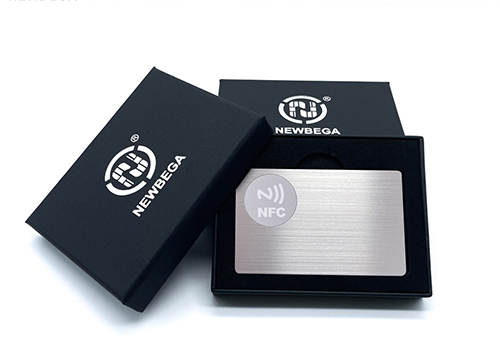
Increased Accessibility
NFC business cards offer increased accessibility in multiple ways, making them a great alternative to traditional paper business cards:
NFC technology is more user-friendly than traditional QR codes: While QR codes rely on third-party apps to be scanned, NFC technology is more intuitive, where users need only bring their phone close to the NFC-enabled card to trigger a data transfer, allowing for simple and straightforward interactions. This ease-of-use ensures a higher probability of connectivity, encouraging more individuals to use and accept NFC cards.
NFC works offline, making it ideal for networking events: With NFC technology, cardholders can share necessary contact information even when the internet is not available during the event. This feature stands out in comparison with digital alternatives, such as email or social media, which require an internet connection. NFC allows for consistent branding across all digital platforms: With NFC technology, businesses can ensure visual consistency between their digital platforms and physical collateral, creating a seamless experience for their clients. NFC business cards can incorporate branding elements that match the company’s overall aesthetics seamlessly, providing a professional-looking business card that conveys the same experience of working with the brand, even via the initial interaction with the NFC business card.
Overall, NFC business cards provide exciting new accessibility benefits compared to traditional paper business cards. NFC is much more intuitive and user-friendly than other alternative methods, and the offline functionality avoids any technological limitations. With the ability to convey consistency in branding across all digital platforms, NFC business cards prove to be an efficient and effective business networking tool that matches the current trends in digital marketing.
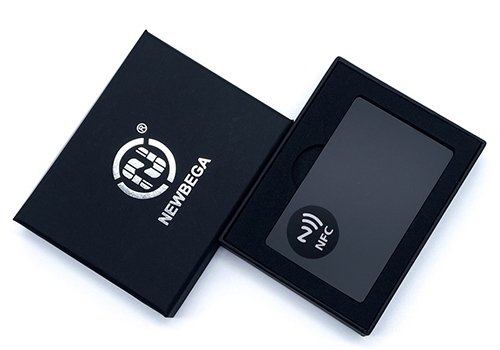
Cost-Effective and Environmentally Friendly
NFC business cards offer a highly cost-efficient and environmentally friendly alternative to traditional paper business cards. Here are three reasons why:
No need for printing or replenishing paper business cards: NFC business cards eliminate the need for extensive printing and shipping costs that come with traditional business cards. Paper business cards may also require periodic replenishing, leading to additional purchasing and shipping costs for businesses.
NFC business cards have a longer lifespan than traditional paper business cards: Since NFC chips are designed to last, NFC business cards have a longer lifespan than traditional paper business cards, which may fade in color or become worn over time. NFC technology’s durability incurs less disposal of worn-out paper business cards over time.
Reduced waste and carbon footprint: NFC business cards’ digital nature excludes the need for printing and shipping paper business cards, leading to reduced waste and carbon footprint, which is crucial for many professionals working towards a sustainable environment. For companies working on reducing their carbon footprint, NFC business cards offer them a chance to play their part in creating an eco-friendly workplace with environmentally-conscious practices.
Overall, NFC business cards offer a more sustainable and efficient option for businesses to connect and engage with clients and colleagues, cutting down on waste and eliminating the need to print, ship, and recycle paper business cards. With reduced printing and shipping, minimized disposal and no depletion of natural resources, NFC business cards provide a cost-effective and environmentally friendly solution for networking purposes.
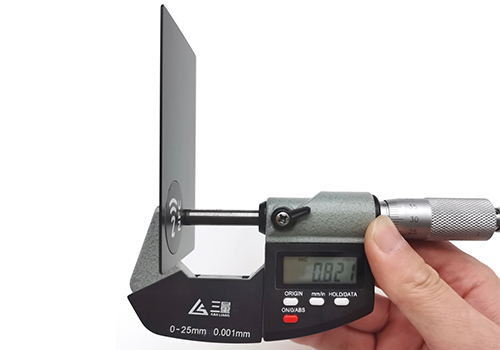
Versatility of NFC
NFC technology is a versatile solution that offers multiple applications and usage beyond its primary use in business card exchanging. Here are three reasons why:
NFC chips can store not only contact information but also additional data: NFC chips have the ability to store a vast range of information, such as links to websites, videos, and social media profiles, promoting the versatility of the technology by allowing the user to convey their portfolio and highlight their work.
Multiple NFC-based applications available: Apart from wearable devices or intelligent transportation systems, NFC technology can power several other applications, including mobile payments, loyalty programs, and access control systems. For instance, in stadiums, patrons can easily access the stadium without waiting in long security queues, utilizing NFC technology in their tickets or devices. The possibilities are endless, and new applications are being developed continuously.
NFC technology can be used in various industries: Healthcare, manufacturing and retail sectors, and logistics are examples of industries that can deploy NFC technology to solve business challenges. NFC tags can be used in different parts of product distribution to improve tracking, automate supply chain management processes, and help in quality control.
The versatility of NFC technology offers a wealth of functions beyond its standard use case into other elements of daily life, leading to more creative ways of using and developing solutions. The adoption of NFC technology in various industries and contexts facilitates the growth of the technology and its advancements.
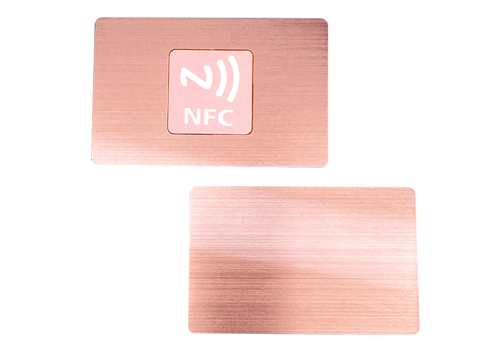
Advancements in NFC Technology
NFC technology is rapidly evolving, with significant advancements improving its reliability, security, speed, and integrating it with other technologies.
Improvements in reliability and security: With increasing concerns about cyber attacks, security has become a top priority. NFC technology has improved with security features that protect users from eavesdropping, snooping, and unauthorized access to data. Additionally, advancements in NFC technology have improved communication reliability, enabling the transfer of data over larger distances.
Integration with other technologies: NFC technology can now integrate with other technologies, such as augmented reality, artificial intelligence, and the Internet of Things (IoT). The integration of NFC technology with other technologies brings about new use cases, such as developing smart homes and supply chains, allowing for efficient tracking of goods and inventory management.
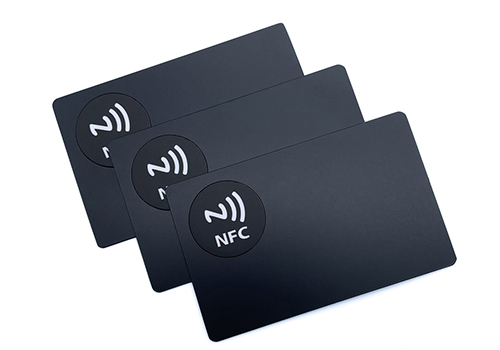
Improved accuracy and speed: Advances in NFC technology have enabled faster and more accurate data transfer, eliminating any possible errors associated with older technologies. This improved speed and accuracy are beneficial in various fields, such as healthcare, where the speedy transfer of electronic medical records is vital.
Overall, NFC technology’s advancements are encouraging the exploration of newer ways to leverage it in different industries and contexts, making it an exciting technology to watch out for in the coming years. With each advancement, NFC technology takes another step in the direction of a more versatile, secure, and integrated approach to handling data.
